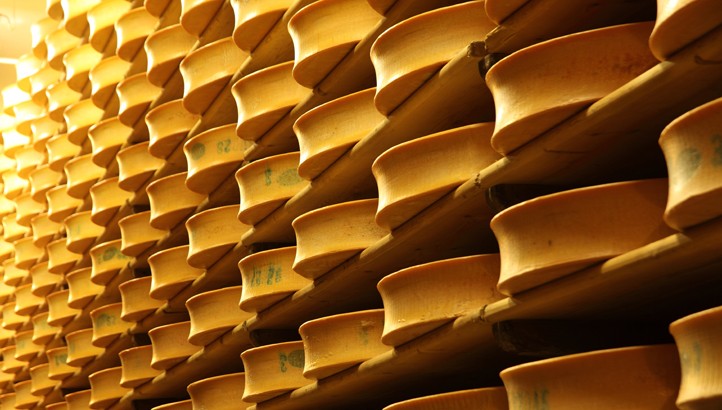Tuesday, 03/03/2026 | 21:18 GMT+7
The power plant has helped reduce the amount of waste that is produced when creating Beaufort cheese
The power plant in Albertville, Savoie, owned by biofuel producers Valbio, uses excess residual skimmed whey - an unneeded by-product of making Beaufort cheese - and uses it to produce 2.8 million kWh annually.
Francois Decker of Valbio, which opened the power station in October this year, said: “Whey is our fuel. It’s quite simply the same as the ingredient in natural yoghurt.”
Albertville is renowned for its production of Beaufort cheese, considered a flagship product in France. The process of making Beaufort creates a transparent liquid often found on top of yoghurts called whey.
The whey is placed in a tank along with bacteria where natural fermentation produces methane, transforming the whey into a biogas. The new biogas is then fed to a machine which heats water to 90 degrees celsius to generate electricity which is sold to energy company EDF.
The power plant has almost eradicated waste produced when creating Beaufort cheese, as leftover cream at the facilities is reused as protein powders and butters. The only waste left by the process is clean water.
The French power plant is Valbio’s largest operational power facility, although the company does have around 20 other small-scale operations across Europe and Canada. Plans are also in place to build facilities in Australia, Italy, Brazil and Uruguay.

Super foods
The use of cheese to generate energy is a concept that has been developed over the last few years. Back in 2013 Wyke Farms, Britain's largest family owned cheese maker, became the first 100% self-sufficient cheese maker by developing green energy in a biogas plant in Somerset.
According to figures from the Anaerobic Digestion and Bioresources Association (ADBA), growth in the UK anaerobic digestion (AD) sector has seen electricity generation from bioenergy surge by 40% from 2013-14 levels.
The launch of a new AD plant in Scotland earlier this year from global drinks firm Diageo has seen around 8,000MWh of thermal energy produced in the distillation process of whisky.
Edie







